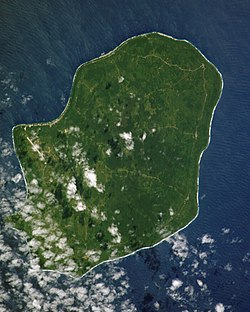| English: The Lord in Heaven | |
|---|---|
 The seal of Niue | |
National anthem of Niue | |
| Lyrics | Unknown |
| Music | Unknown; prepared by Sioeli Fusikata |
| Adopted | 1974 |
| Audio sample | |
Instrumental version, 2023 | |
"Ko e Iki he Lagi" (English: "The Lord in Heaven"), also titled in English as "Lord in heaven, Thou art merciful", [1] is the national anthem of Niue. It was adopted in 1974, when Niue became a self-governing state within the realm of New Zealand.
Contents
